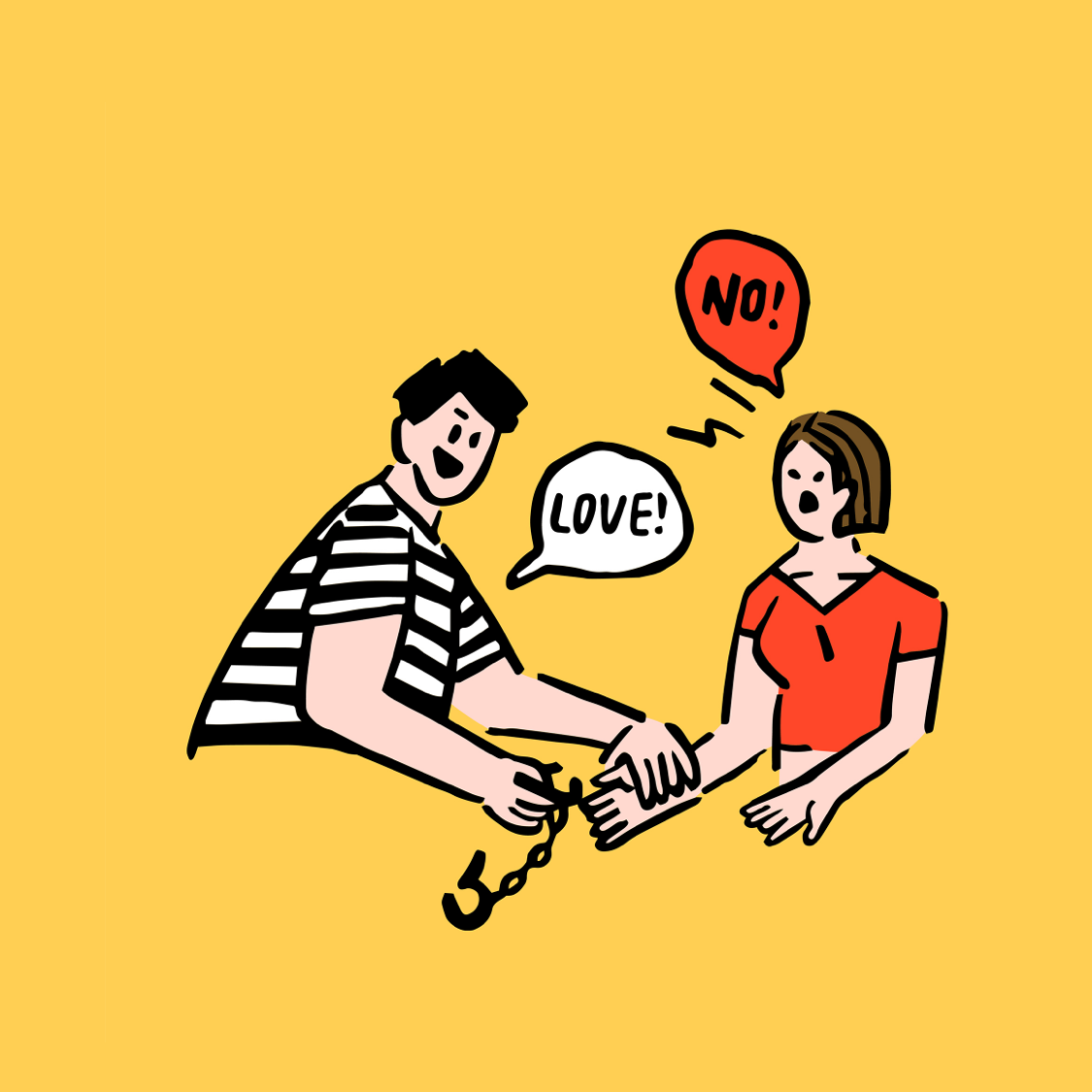Objectives
Anyone can be weak when it comes to the person we love. We can forgive mistakes and overlook accidents, we can ignore all the red flags and warning signs. We can even fool ourselves into thinking that we can change someone, if we just try a little harder, love a little stronger, hold out a bit more. But when all is said and done, the love that you are trying to save, isn’t really love at all.
Violence that calls itself Love
What is Intimate Partner Violence (IPV)?
IPV refers to any kind of verbal, emotional, physical, sexual or financial violence inflicted within an intimate relationship (usually dating, domestic partner, married etc). Many people assume that violence only refers to physical assault, but it can also include abusive language, surveillance and control, intimidation, coercion, and harassment.
While the term ‘intimate partner’ may seem to imply married or domestic couples it refers to any intimate relationship including casually dating or hooking up.
IPV can impact victims social lives and interpersonal relationships, and survivors can suffer from a range of mental disorders such as depression, anxiety or anorexia nervosa.
Types of IPV
Physical assault is not the only form of violence. There are many ways that a perpetrator will try to exert control including verbally, financially, and sexually.
- Control
- Always need to know who you’re with, and try to limit your relationships
- Try to limit and control what you wear
- If they don’t like your job, they try to encourage or force you to quit
- Control your daily schedule and interfere with your plans
- They often monitor your phone, e-mail, SNS activities
- Verbal・Emotional
- Using bad language, swear words or insults
- Shouting in a threatening manner
- Blaming you whenever something goes wrong
- Damaging your self esteem and confidence through insults and criticism
- Physical
can include seemingly smaller things like;
- Grabbing your arm or wrist with full strength
- Pushing you
- Acting violently enough to leave a sprain, bruise or wound
- Slapping you in the face
- Sexual
- Touching your body regardless of your wishes
- Hugging or kissing you regardless of your wishes
- Forcing sexual activities regardless of your wishes
- Financial
- Controlling your living or dating expenses
- Disregarding or deriding you for not being ‘good with money’
- Monitoring your bank account activity
- Forcing you to pay for dates, or their debts
IPV Checklist
If your partner checks even one of these boxes, or has in the past, then that’s sufficient to suspect IPV. Don’t keep your concerns to yourself. Talk to a counsellor, or the people around you to get support.

How to escape IPV
- Determine the truth behind the apologies
Regardless of the form, abusers almost always try to win back your trust through apologies and tears and promises to never do it again. Stay determined, don’t be swayed. The first time may be difficult, but the second time is easy. You can’t accept fear or violence in a relationship even once. You can’t justify it for any reason. Sometimes it can be hard to judge a person’s true intentions, or to take decisive action. In those cases, seek advice from a third party you trust.
- Save Evidence
Record the date, time, place and details of any situation where you felt threatened or abused. Save any messages, emails, phone call or conversation details too. If you experience physical or sexual violence call emergency services immediately, and request help from a women’s victim support center. Even if you decide not to report the violence now, save evidence that you may need later.
- Ask for Help
Ask for help from someone you trust like a family member, friend, colleague or teacher. Utilize specialized institutions, such as sexual violence counselling centers, where you can get support from experts. If you need to meet the perpetrator don’t go alone, bring someone to accompany you. You need help, and the world is ready to help you.
※ Every persons situation is different, and everyone’s way of dealing with their situation is different. It can be incredibly difficult to escape an intimate partner violence situation without help. It’s not your fault if you can’t follow these steps, or if they don’t work. The bottom line is that regardless of the victim, regardless or the circumstances or the logic, violence cannot be justified.
Summary
- Understand the signs of IPV, and be resolute in your determination
- A relationship based on one persons sacrifice can never be healthy
- If you ever feel confused, or need help, reach out to professionals or those you trust
